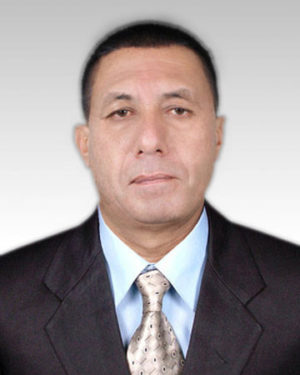Divorce Process in Nepal : Divorce Lawyers in Nepal
30 October 2019
(This article provides details regarding divorce process in Nepal)
Divorce is the formal means of dissolving marital relations between husband and wife. Civil Code 2017 (“Civil Code”) is the governing law which deals with the matters of divorce in Nepal. If both husband and wife so desire, they may terminate their marital relationship through divorce at any time.
1. WHAT ARE THE LAWS RELATING TO DIVORCE IN NEPAL?
Legal procedure of divorce is governed by Chapter on Divorce of the Civil Code. Section 93 to 104 of Civil Code are related to divorce.
2. WHAT ARE THE AUTHORITIES RELATED TO DIVORCE?
The application for divorce is filed in the relevant District Court.
3. CAN A WIFE OR HUSBAND EFFECT DIVORCE WITHOUT THE CONSENT OF THE OTHER?
The husband or wife may effect divorce even without the consent of the respective spouse in any of the following circumstances:
- For husband
(a) Except where the husband and wife are living separately after obtaining their partition share or separating bread and board in accordance with law, if the wife has been living separately for three or more consecutive years, without consent of the husband;
(b) If the wife deprives the husband for the maintenance costs or expels him from the house;
(c) If the wife commits an act or conspiracy likely to cause the grievous hurt or other severe physical or mental pain to the husband; or
(d) If the wife is proved to have made sexual relation with another person.
- For wife
(a) Except where the husband and wife are living separately after obtaining their partition share or separating bread and board in accordance with law, if the husband has been living separately for three years or more consecutively, without consent of the wife;
- b) If the husband deprives the wife for the maintenance costs or expels her from home;
(c) If the husband commits an act or conspiracy likely to cause grievous hurt or other severe physical or mental pain to the wife;
(d) If the husband concludes another marriage;
(e) If the husband is proved to have made sexual intercourse with another woman; or
(f) If the husband is proved to have raped the wife.
4. WHO CAN INITIATE A DIVORCE CASE?
Any party (husband or wife) willing to have a divorce, can initiate a case of divorce.
5. WHAT IS THE PROCEDURE OF DIVORCE IN NEPAL?
The procedure of divorce in Nepal is briefly provided below:
a) Petition to be filed for divorce.
The husband or wife, as the case may be, desiring to get divorce is required to file a petition in the concerned District Court.
b) Notice be given to the other party.
The Court gives notice of petition to another party through officials of court.
c) Reply from the other party.
After getting notice of petition, the receiving party must file a reply of petition in the Court within the stipulated time.
d) Mediation to be made between husband and wife.
If a petition is filed for divorce, the Court shall, to the extent possible, remind and convince both the parties and conciliate them to solve the dispute.
e) Partition of property to be effected before divorce.
(1) If divorce is to be effected because of the husband, the Court shall, if the wife so demands, cause partition to be effected between the husband and wife before effecting divorce.
(2) If it appears that it may take a long time to effect partition, the Court may effect divorce between the husband and wife and order the husband to provide the wife with monthly expenses as alimony according to the property and income of the husband until the partition is effected.
f) Decision of divorce from the Court.
If the Court fails to make conciliation between the husband and wife even after reminding and convincing them and deems appropriate to get the relationship divorced rather than to continue it any longer, the Court shall effect divorce between them.
g) Cancelling the marriage registration certificate.
Decision of divorce must be recorded and marriage registration certificate must be cancelled from the concerned Ward Office.
6. ARE THERE CONDIITONS WHERE THE HUSBAND IS NOT COMPELLED TO PROVIDE PARTITION SHARE OR ALIMONY TO THE WIFE?
The husband shall not be compelled to provide partition share or alimony to the wife under the following conditions:
(a) If the wife deprives the husband of maintenance costs or expels him from the house;
(b) If the wife commits an act or conspiracy likely to cause the grievous hurt or other severe physical or mental pain to the husband; or
(c) If the wife is proved to have made sexual relation with another person.
7. WHETHER WIFE CAN GET LUMP SUM AMOUNT OR ALIMONY INSTEAD OF PROPERTY?
If the wife who effects divorce desires to obtain from the husband a lump sum amount or annual or monthly alimony or expense, instead of the partition share, the Court may order the husband to provide such a wife with a lump sum amount or annual or monthly alimony or expense on the basis of his property or income.
Provided that if such a wife concludes another marriage, it is not required to provide such amount or alimony.
8. WHAT ARE THE CONDITIONS WHERE CHILD OR PREVIOUS HUSBAND CAN OBTAIN PROPERTY?
On the death of a divorcee woman, her son, daughter, if any, shall be entitled to her property, and if not, the previous husband shall obtain the property received by her from such a husband, and the successor on her mother’s side shall obtain property which was not received from husband.
9. WHAT IS THE PORTION OF PROPERTY THAT A WIFE IS ENTITLED FROM THE HUSBAND?
(1) Wife shall get equal entitlement to partition share on the property of husband. For the purposes of apportionment of a property in common, the husband, wife, father, mother, son and daughter shall be deemed to be coparceners.
(2) If a property in common is registered in the name of both husband and wife or either of them, then such property shall be partitioned between them according to law, prior to effecting divorce.
(3) If the husband himself has not obtained partition from his father or other coparceners, the Court shall, by causing both the parties to disclose the coparceners, and if there are other coparceners who are entitled to partition, by inquiring such coparceners as well, cause partition to be apportioned between the husband and wife.
10. WHAT IS THE CONDITION FOR MAINTAINENCE COST AND WHO IS LIABLE TO PAY?
If the wife, who has not obtained partition from the husband for there being no property for partition, desires to receive maintenance costs from the husband and the husband has income, the Court may order the husband to provide maintenance costs to the wife according to the income of the divorced husband.
Provided that, (i) If such a wife concludes another marriage, it is not required to provide such costs, (ii) If the income of the wife is higher than that of the husband, it is not required to provide such costs.
11. WHETHER HUSBAND OR WIFE LIVING ABROAD CAN FILE FOR DIVORCE WITHOUT BEING PRESENT IN NEPAL?
Yes, husband or wife living abroad can file for divorce in Nepal without being present in person. For this, an authorized power of attorney needs to verified and authenticated from concerned embassy of Nepal in that country.
12. WHAT ARE THE REQUIRED DOCUMENTS FOR DIVORCE?
Following are the required documents for divorce application:
- Marriage certificate (if not available then any other proof of marriage);
- Copy of citizenship certificate;
- Passport sized photograph of applicant; and
- Evidence to prove the claim (if any).
13. HOW MUCH TIME IS REQUIRED FOR EFFECTING DIVORCE IN NEPAL?
If husband and wife have mutual consent, the Court shall effect divorce between them immediately. Provided that if the husband and wife do not agree to conciliate between them despite being reminded and convinced by the Court to that effect, the Court shall effect divorce after one year of the filing of the petition.
Disclaimer: This article is for informational purposes only and shall not be construed as legal advice, advertisement, personal communication, solicitation or inducement of any sort from the firm or any of its members. The firm shall not be liable for consequences arising out of any action undertaken by any person relying on the information provided herein.
Related Professionals
aaa



